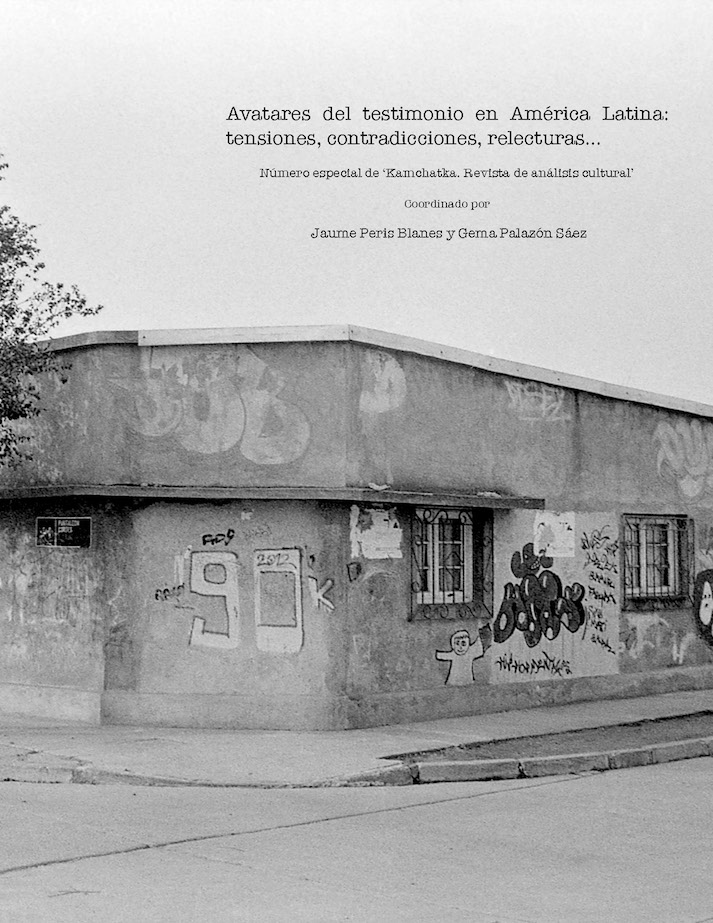Memoria y traición femenina en la ficción y el testimonio
DOI:
https://doi.org/10.7203/KAM.6.7001Keywords:
Chile, postdictadura, memoria, dictadura, violencia, colaboración Abstract
Abstract
Resumen: El artículo analiza la representación de las mujeres que, habiendo formado parte de la militancia de izquierda en los setenta, pasó a colaborar con los organismos represivos después de haber sido sometidas a una tortura extrema. Algunas novelas contemporáneas, como La vida doble o El fin de la historia construyen su relato en torno a estas figuras, que catalogan bajo el paradigma de la traición, contribuyendo a la consolidación de narrativas estigmatizadoras en torno a ellas.
Palabras clave: Represión, traición, género, testimonio, ficción.
Abstract: The article focuses on the representation of women who were leftist militants in the seventies but became collaborators of the repressive institutions, after suffering an extreme violence against them. Some contemporary novels, such as La vida doble or El fin de la historia fictionalize the life of some of these women. The article focuses in the way they do it and the meanings the contribute to build about political militance, repression and betrayal.
Key words: Repression, Betrayal, Gender, Testimony, Fiction.
 Downloads
Downloads
 References
References
Bibliografía Arfuch, Leonor (2008). Crítica cultural entre política y poética. Buenos Aires: Fondo de Cultura Económica. Becker Eguiluz, Nubia (2011). Una mujer en Villa Grimaldi. Santiago: Pehuén. (1982, autoeditada como Recuerdos de una mirista bajo el seudónimo Carmen Rojas). Bergoffen, Debra (2012). Contesting the Politics of Genocidal Rape. Affirming the Dignity of the Vulnerable Body . New Jersey: Routledge. Fontaine, Arturo (2010). La doble vida. Barcelona: Tusquets. Fontaine, Arturo (2010b). “La traición es la forma más intensa del mal”. CEP: Santiago de Chile. Heker, Liliana (1996). El fin de la historia. Buenos Aires: Anagrama. Jara, René (1982). “Prólogo.” Testimonio y Literatura. Eds. René Jara y Hernán Vidal. Minnesota: Idealogies and Literatures: 1-6. Lewin, Miriam y Wornat, Olga (2014). Putas y Guerrilleras. Crímenes sexuales en los centros clandestinos de detención. La perversión de los represores y la controversia en la militancia. Las historias silenciadas. El debate pendiente. Buenos Aires: Planeta. Longoni, Ana (2007). Traiciones. La figura del traidor en los relatos acerca de los sobrevivientes de la represión. Buenos Aires: Grupo Editorial Norma. Peris, Blanes, Jaume (2013). “Contradicciones de la memoria. Ficcionalización del testimonio y figuración de la traición en La vida doble (Arturo Fontaine, 2010).” Les Atielieres du SAL3 ( 2013): 49-63. Sime, Fátima (2009). Carne de perra. Santiago: LOM.
Downloads
Published
How to Cite
-
Abstract1016
-
Artículo (Español)650
Issue
Section
License
This journal provides an immediate free access to the content on the principle that freely make investigation available to the public, which promotes an increased global knowledge exchange.
Unless otherwise indicated, texts published in this journal are under the license Attribution-NonComercial 4.0 by Creative Commons. These texts may be copied, distributed and publicly communicated whenever the publication’s author and title are quoted and whenever they are not used for commercial purposes. In any case, intellectual property of the articles and its potential economic rights entirely belong to its authors.
The full license can be consulted on https://creativecommons.org/licenses/by-nc/4.0/. We encourage authors to disseminate papers published in Kamchatka. Journal of cultural analysis electronically, in institutional digital repository or in their websites.





